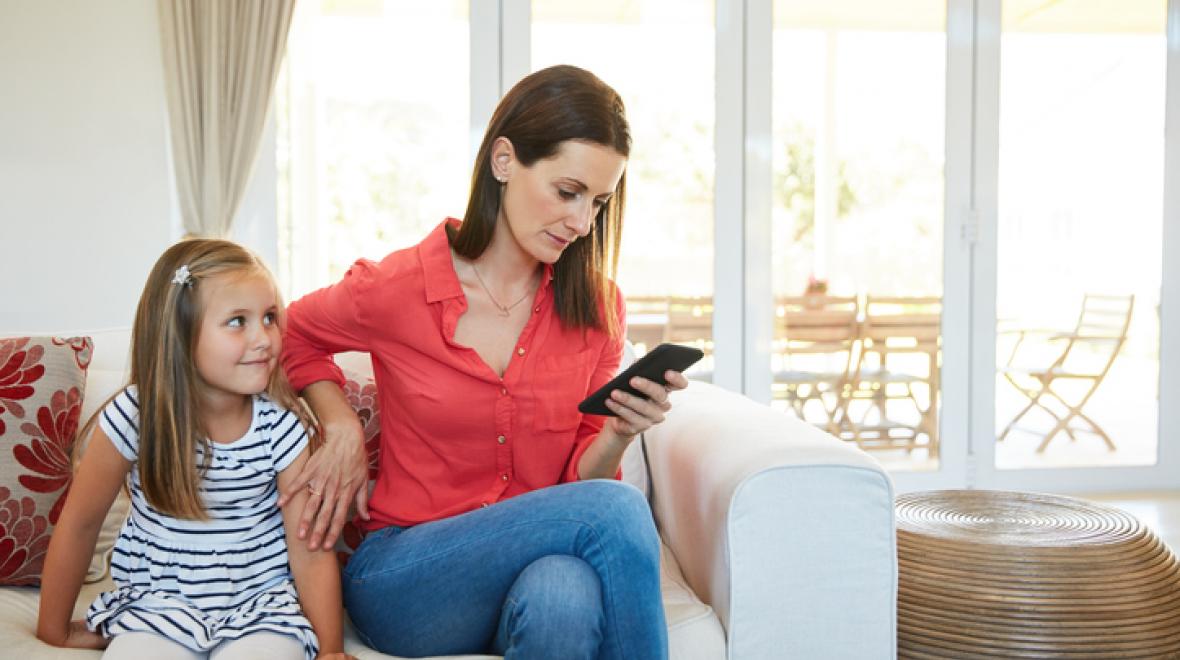
As parents, our job is to set and maintain a healthy routine for our families. While routine is vital for kids, it’s not always great for us. When we race through the day on auto-pilot, we can miss out on opportunities to connect with — and parent — our children.
In today’s hectic world, it’s hard to be focused about how you approach every interaction with your child.
Are you an auto-pilot parent?
Perhaps when your child whines, your first inkling is to shush him or her. If you find yourself shutting your child down out of habit, it may be an area you want to improve.
You may also be disciplining on auto-pilot, snapping at your child the same way your parents barked at you as a child. You may feel bad afterward, thinking that you wish you responded differently. Like many parents, you may just be too distracted or busy to explain things to your child. Instead, you give a short answer, and miss the opportunity to teach him or her a life-lesson. This is auto-pilot parenting. And the answer to it is mindfulness.
According to a study from the University of Vermont, parents who were more mindful had better outcomes — less anxiety, depression or acting out — in their kids.
Being more mindful in your parenting approach will leave you feeling better about yourself. Taking that time to be the parent you want to be instead of reacting poorly in a moment of haste is great for the entire family.
How to turn off auto-pilot
There are a few things you can do to break free of auto-pilot parenting. Once you know the personal areas you want to improve on, you can use mindfulness to chart a new course. And make sure to go easy on yourself as you change your parenting approach.
“The first step to changing this pattern is becoming more aware of our feelings or thoughts,” says Kate Kerr, a mindfulness expert based in Toronto. “Perhaps our mind is busy, or we feel guilty about pausing to play. We simply notice this, trying not to judge ourselves.”
One of the greatest gifts we can give our kids is being fully present with them.
Another way to stop auto-pilot parenting making time in the day to pause. Just by being more aware of how you want to act and react toward your child or children, you’re already taking a huge positive step. Perhaps you meditate for a few minutes in the morning, or simply drink your coffee without checking your phone in the morning. Think about the kind of parent you want to be, and how each day is a new opportunity to practice better parenting.
When you notice that you are about to do that thing you don’t want to do, (such as yell at your child for disobeying you or warn your child not to ask more questions), stop and take a breath. That may be all you need to remind yourself that you’re falling into your old reactionary pattern. From there, you can act in a way that’s more in line with your intention.
If that breath or pause isn’t enough, you may want to establish a personal mantra to bring you back to your place of intention. That can help you be more mindful about how you respond to your child, and help you do it more from the heart — or at least in a more loving way.
“One of the greatest gifts we can give our kids is being fully present with them, which means noticing if we're thinking about the one-hundred things on our to-do list and letting that be in the background,” Kerr says.
In addition to taking your own time-out, take a few minutes each day to stop and simply observe your children. Your example will teach them to be mindful, too.
“Notice what they do. Listen to what they say, without interrupting or saying anything back. Just watch and be a presence for them,” Kerr adds.
Parenting requires pausing
The concept of “mindful parenting” may just sound like a trendy buzzword, but it really is the key to parenting with intention. Keep in mind that mindful parenting stuff is not easy!
It’s easy to get frustrated when kids are barking at you along with all the other demands in your day. It’s okay to make mistakes, and even better if you apologize to your child when you notice you react in a way you didn’t want to.
Practicing mindfulness isn’t a destination. It’s just that: a practice. Sometimes you fail, sometimes you win. In doing it, though you are on the path to having more overall peace of mind. Once you start acting like parent you want to be, you’ll also start feeling better about the way you lead your family and enjoying your time together.











